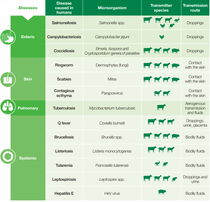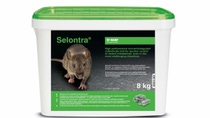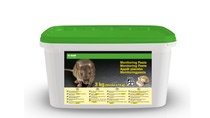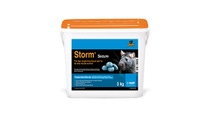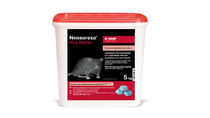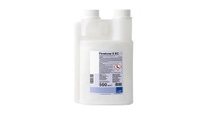BASF Professional & Specialty Solutions
Biosecurity in Livestock Farms
Biosecurity measures prevent or reduce the incidence of diseases and increase animal welfare and safety. Insects, rodents, and microorganisms can carry diseases which can be rapidly spread throughout the livestock holding. Reducing the incidence of such diseases with good practices of Integrated Pest Management, cleaning and disinfecting will have a positive effect on livestock health and welfare, and therefore contributes to increase livestock holdings productivity. Livestock farms must offer the best possible hygienic and environmental conditions for the animals to guarantee their sustainable development.
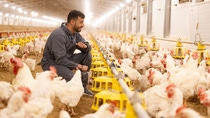
Cleaning and disinfection
Cleaning and disinfection tasks reduce the microbial load and prevent the spread of disease. These tasks must be correctly undertaken and adapted to the routine of the actual circumstances on the farm.
A cleaning protocol is essential, personnel training and choosing the correct products are key factors to have a successful implementation.
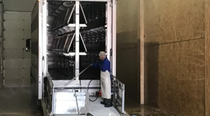
Main benefits of cleaning (with soap) and disinfection
Therefore, cleaning and disinfection on farms, in animal transport lorries and slaughterhouses is not an expense, but rather an investment that makes it possible to minimize losses and maximize profits.
Furthermore, it makes the sector a highly competitive exporter.
Rodent control
Rodents are a major source of disease, often with late detection but very prevalent in most cases. Rodents can represent a real hygiene and health problem, as they can spread up to 200 pathogens and 45 diseases via their droppings, claws, fur, urine, saliva, and blood. The most common disease transmitted by rodents is Salmonella.
Livestock farms offer ideal conditions for rodents as they have food, water, and shelter. If a rodent infestation is not controlled, it can cause huge economic losses.
For more information about rodents click here
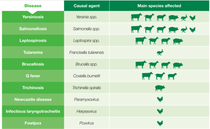
Main diseases transmitted by rodents
Insect control
Insects are also an important source of disease and stress for the animals sometimes undetected but very prevalent in most cases.
Insects harm and stress livestock and poultry by harassing and biting them. Restless behavior in cattle can reduce food intake or milk production, causing production losses. Pests routinely spread diseases among livestock populations. For instance, house flies transmit E. coli, Salmonella, and swine dysentery bacteria to pigs, among many other pathogens.
Cockroaches can spread a range of diseases, acting as both a reservoir and mechanical vector. Transmission of these diseases includes inhalation, digestion, and cross-contamination. Not only does this affect humans, but it also affects our animals. Meaning, you may want to start keeping a closer eye on your livestock. Some of the diseases and bacteria cockroaches spread include Sarcocystosis, Salmonella, Pseudomonas Aeruginosa, and Listeriosis.
Insects are hugely important when it comes to health, as they are the vectors of countless pathogenic microorganisms. Thus, insect control must be done to ensure the hygiene and sanitation of the livestock holding and the animal welfare.
For more information about insects click here.
Impact/risks

Benefits to use BASF products
Highly effective solutions
Farmers and pest controllers operating on farms and agricultural businesses understand the specific challenges associated with the control of rodents and insects in agricultural settings. They know that they can rely on the proven efficacy of BASF control solutions to quickly target problem areas and avoid re-infestation.
Peace of mind
Farmers know that pest infestations can hit their bottom line and endanger food safety. By using BASF products they can be sure to benefit from the latest innovations in formulation and application for complete pest control.
Related Products
Information: Use biocide products carefully. Always read the label and product information before use.

